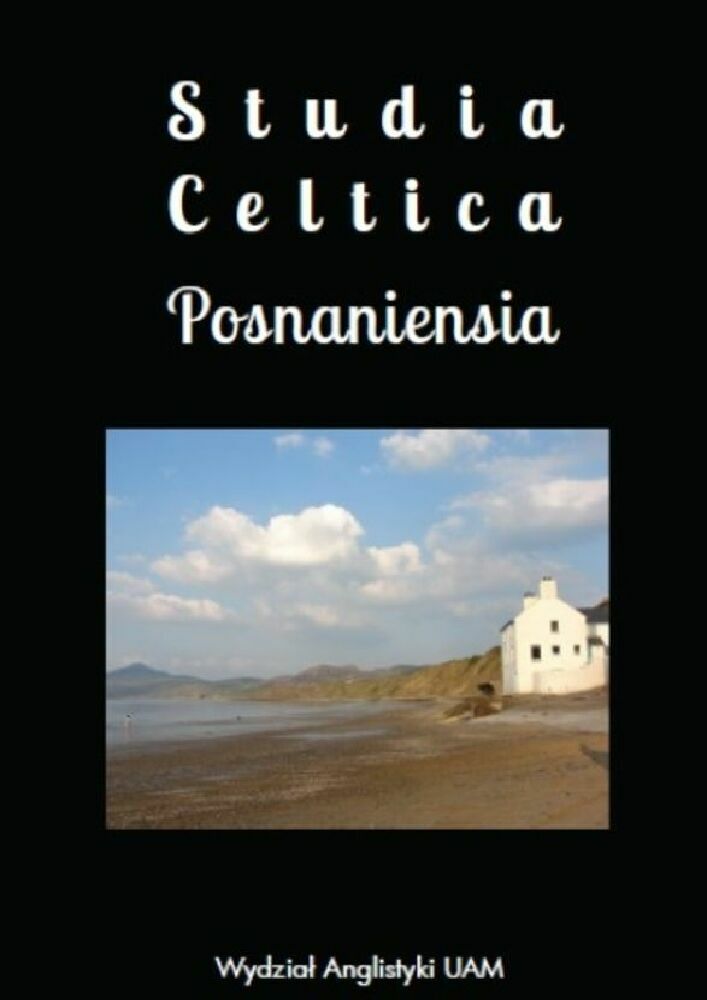Abstract
For some years now, Welsh has been taught as a foreign language outside Wales, most especially in other Celtic countries, central Europe – and Poland. The first courses were established in the Catholic University of Lublin in the 1980s, and this provision has expanded over the years to include a Celtic language specialisation within the Faculty of English at Adam Mickiewicz University in Poznań. Relying at first on teachers from Wales to provide instruction in Welsh, the Centre for Celtic Studies is increasingly producing new, competent speakers/users of Welsh among the Poles. An obvious question to be asked concerns motivational issues – why, on the eastern edges of the European Union, are there people willing to put the effort into learning a language from the far west of Europe, when they have, in some cases, little contact with regular users of Welsh? Through the use of focus group interviews, the present study attempts to discover what motivates Polish students to study Welsh in a context of limited direct contact with the speakers of the language and limited, indirect access to Welsh language and culture.
References
Bassnett. Susan (ed.). 1997. Studying British cultures: An introduction. London: Routledge.
Bendowska, Marta, Anna Bieńskuńska, Paweł Luty, Karol Sobestjański, Joanna Wójcik. 2011. Jakość życia i spójność społeczna. Warszawa: Główny Urząd Statystyczny.
Clement, Richard, Zoltán Dörnyei and Kimberly A. Noels. 1994. “Motivation, self-confidence and group cohesion in the foreign language classroom”, Language learning 44(3): 417-448.
Cunliffe, Daniel, Delyth Morris and Cynog Prys. 2013. “Young bilinguals’ language behaviour in social networking sites: The use of Welsh on Facebook”, Journal of Computer-Mediated Communication 18: 339-361.
Dörnyei, Zoltán. 2001. Teaching and researching motivation. Harlow: Pearson Education.
Dörnyei, Zoltán, Kata Csizér and Nóra Németh. 2006. Motivation, language attitudes and globalisation: A Hungarian perspective. Clevendon: Multilingual Matters, Ltd.
Gardner, R.C. and W.E. Lambert. 1972. Attitudes and motivation in second language learning. Rowley, MA: Newbury House.
Gardner, RC. 1979. “Social psychological aspects of second language acquisition”, in: H. Giles, and R. St. Clair (eds.), 193-220.
H. Giles, and R. St. Clair (eds.). 1979. Language and social psychology. Oxford: Blackwell.
Giles, H. and J.L. Byrne. 1982. “The intergroup model of second language acquisition”, Journal of Multilingual and Multicultural Development 3: 17-40.
Gramich, Katie. 1997. “Cymru or Wales? Explorations in a divided sensibility”, in: Susan Bassnett (ed.), 97-112.
Jones, Christine. 1991. “The Ulpan in Wales: A study in motivation”, Journal of Multilingual and Multicultural Development 12(3), 183-193.
Jones, Rhys James, Daniel Cunliffe and Zoe R. Honeycutt. 2013. “Twitter and the Welsh language”, Journal of Multilingual and Multicultural Development 34(7): 653-671.
MacMathúna Séamus and Maxim Fomin (eds.). 2006. Parallels between Celtic and Slavic: Proceedings of the First International Colloquium of Societas Celto-Slavica held at the University of Ulster, Coleraine 19-21 June 2005. [Northern Ireland]: Stationery Office.
McLeod, W., A. MacCaluim and I. Pollock. 2010. Adult Gaelic learning in Scotland: Opportunities, motivations and challenges. Inverness: Bòrd na Gàidhlig.
Migration Observatory http://migrationobservatory.ox.ac.uk/press-releases/changes-migrant-population-wales-2001-2011 (accessed 6 January 2016).
Olbracht-Prondzyński, Cezary and Tomasz Wicherkiewicz (eds.). 2011. The Kashubs: Past and present. Oxford, Bern, Berlin, Bruxelles, Frankfurt am Main, New York, Wien: Peter Lang.
Pritchard-Newcombe, Lynda. 2007. Social context and fluency in L2 learners: The case of Wales. Clevendon: Multilingual Matters.
Skehan, Peter. 1991. “Individual differences in second-language learning”, Studies in Second Language Acquisition 13: 275-98.
Stalmaszczyk, Piotr. 2006. “Celtic studies in Poland: Recent themes and developments”, in: Séamus MacMathúna and Maxim Fomin (eds.), 43-62.
TNS Polska. 2015. Znajomość języków obcych.http://www.tnsglobal.pl/wp-content/blogs.dir/9/files/2015/06/K.041_Znajomosc_jezykow_obcych_O05a-15.pdf (accessed 6 January 2016).
Wright, Margaret and Orla McGrory. 2005. “Motivation and the adult Irish language learner”, Educational Research 47(2): 191-204.
License
Copyright (c) 2016 The Faculty of English, Adam Mickiewicz University

This work is licensed under a Creative Commons Attribution-NonCommercial-NoDerivatives 3.0 Unported License.
